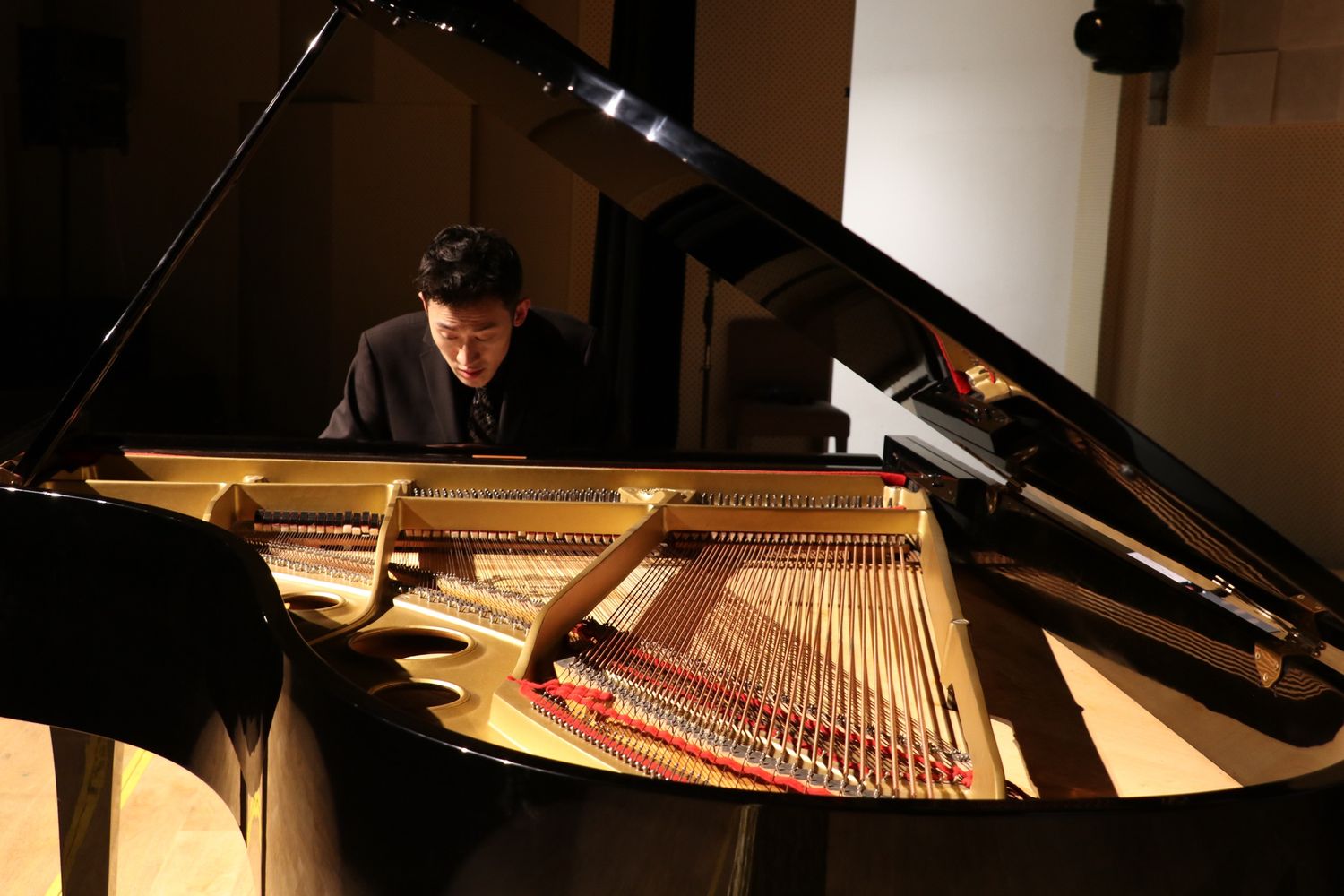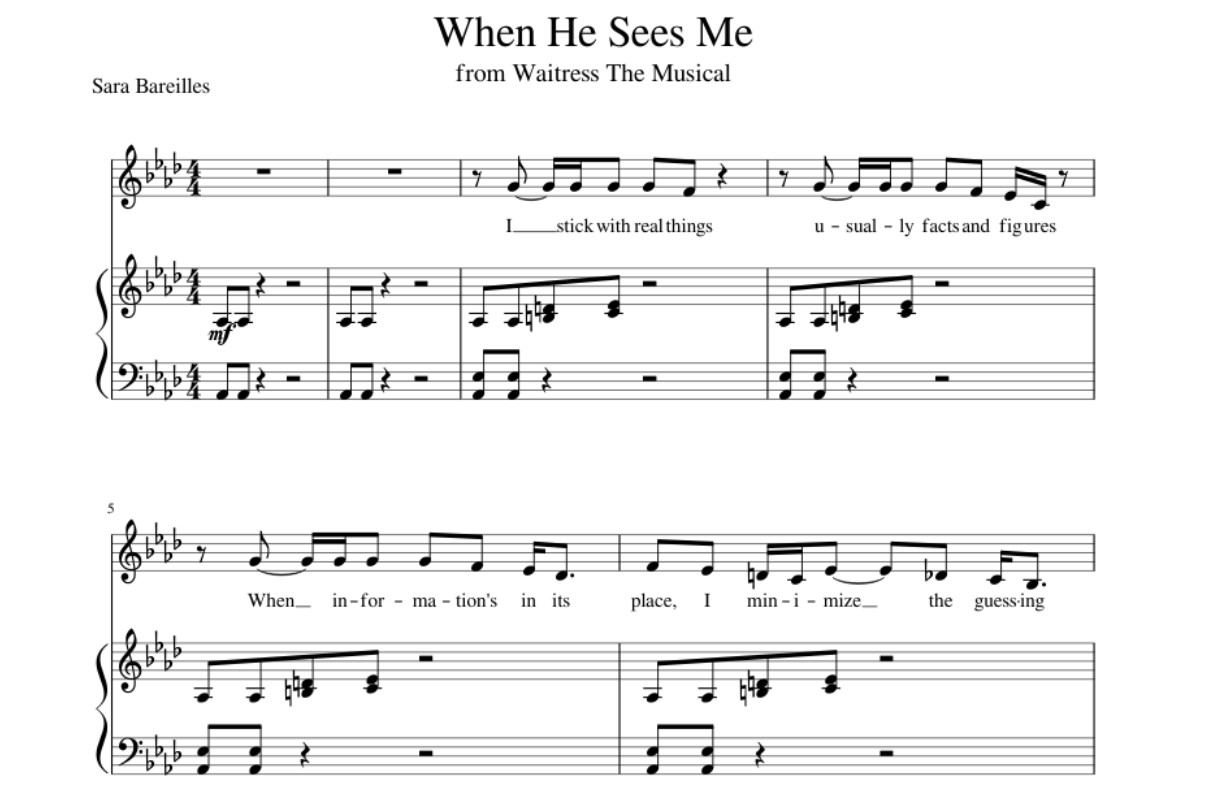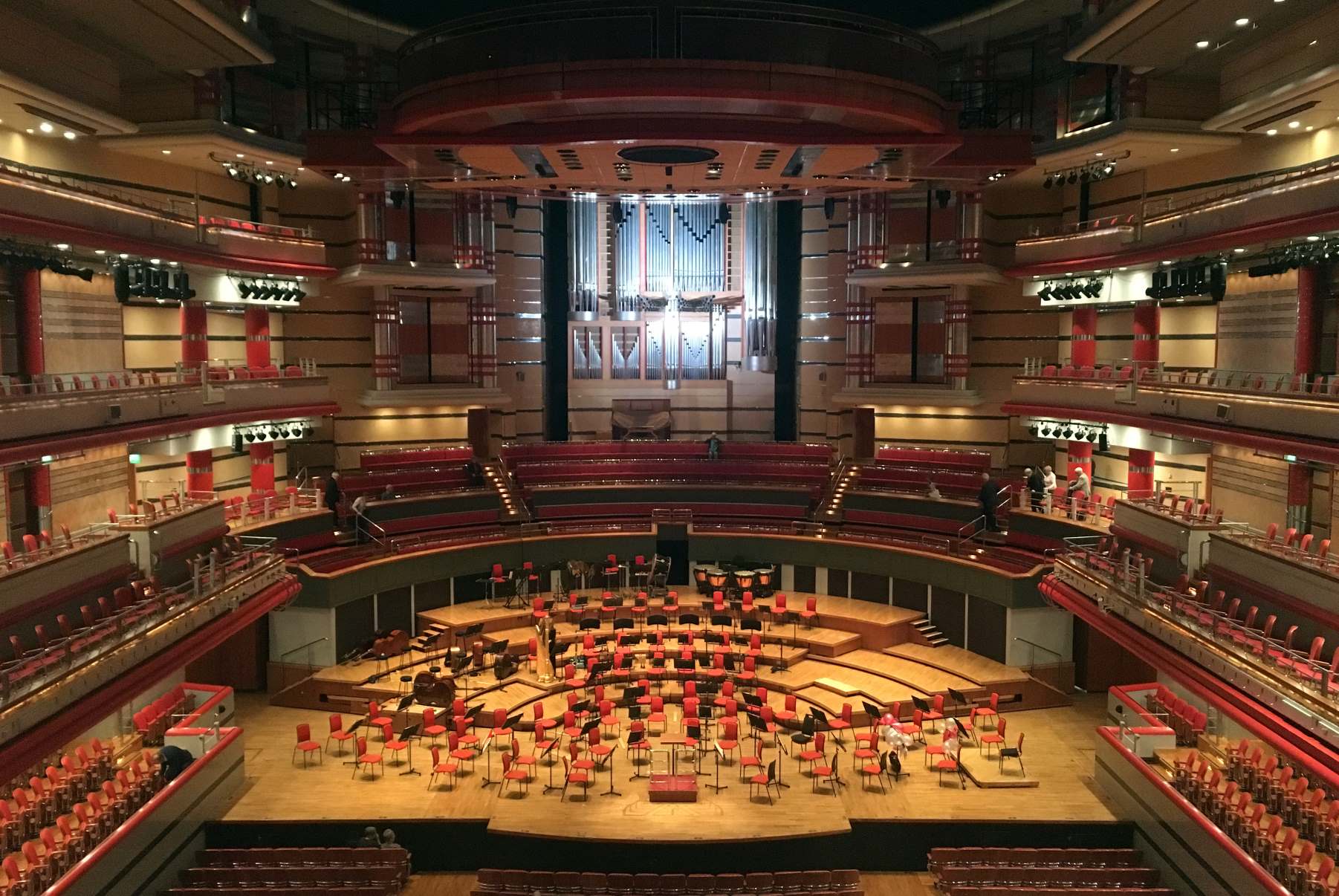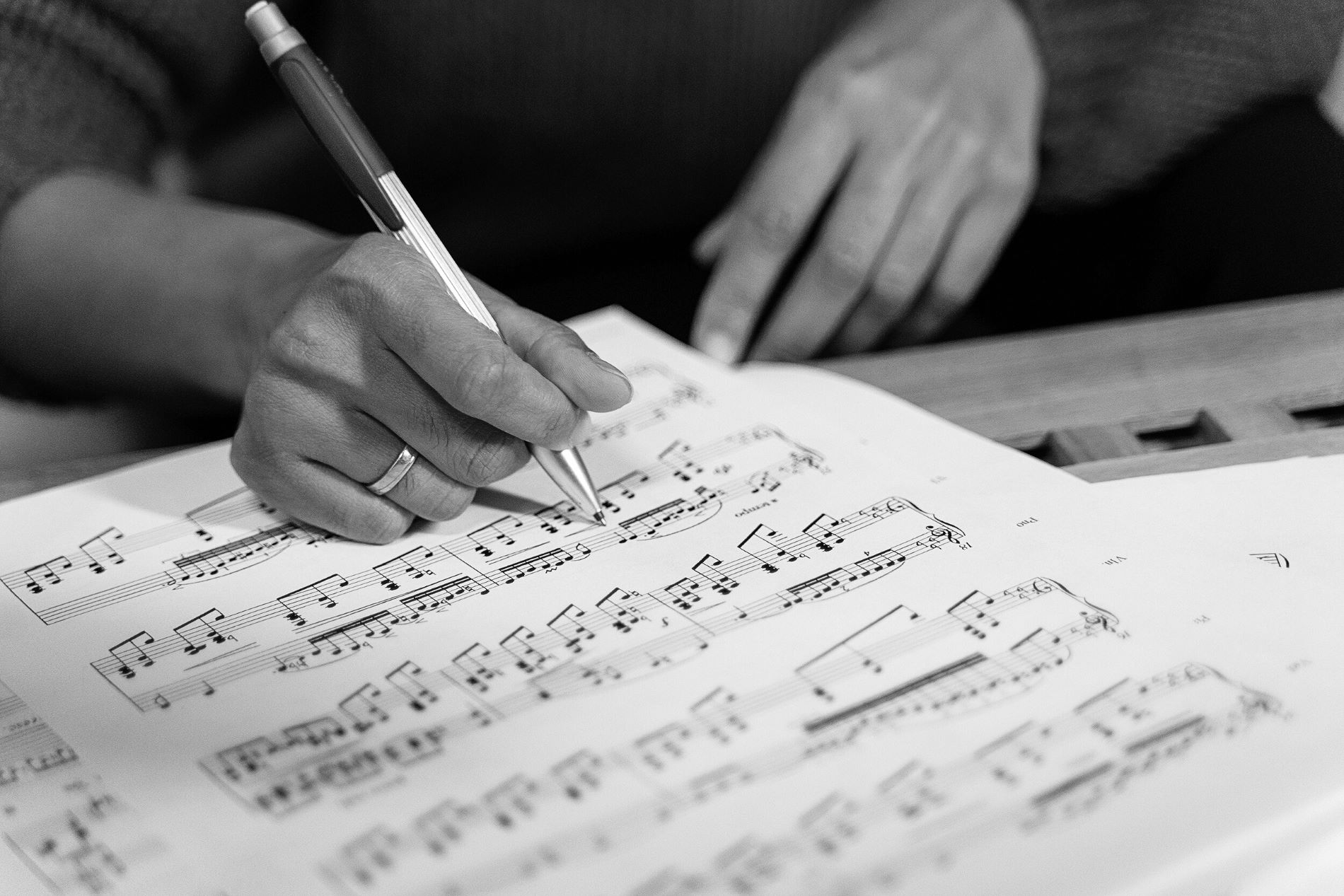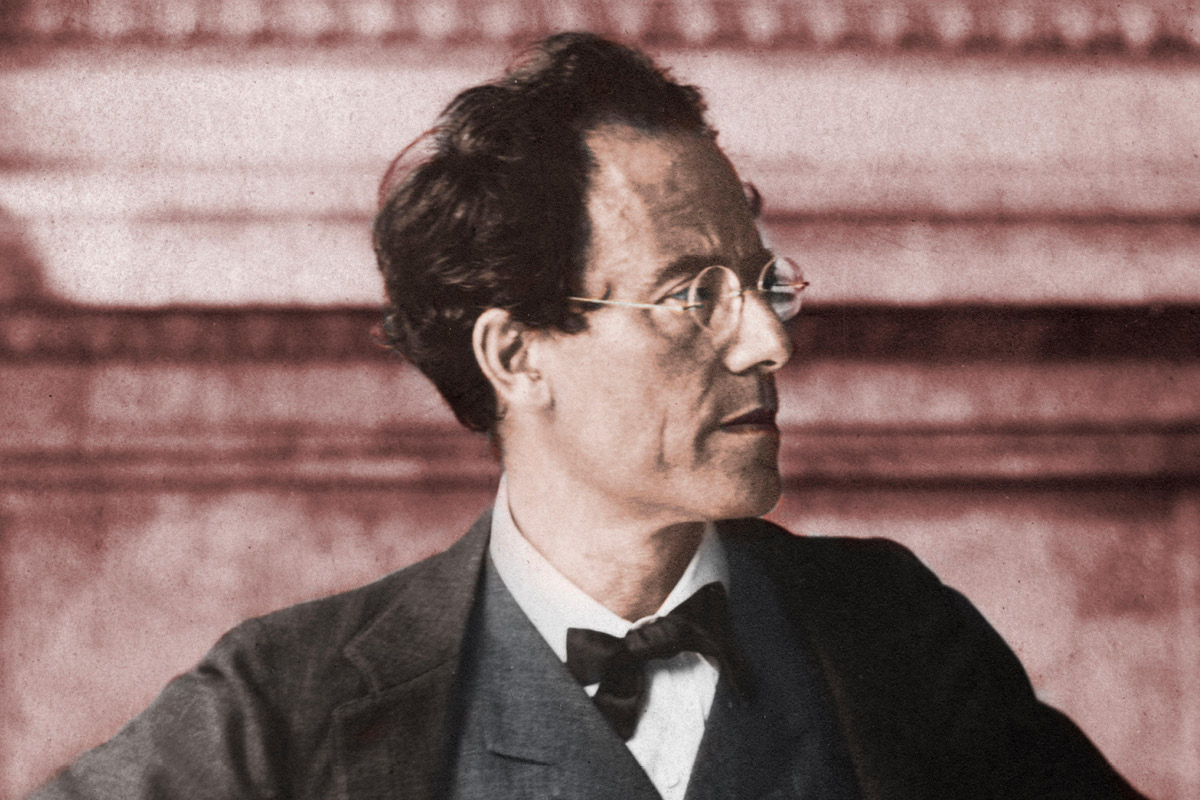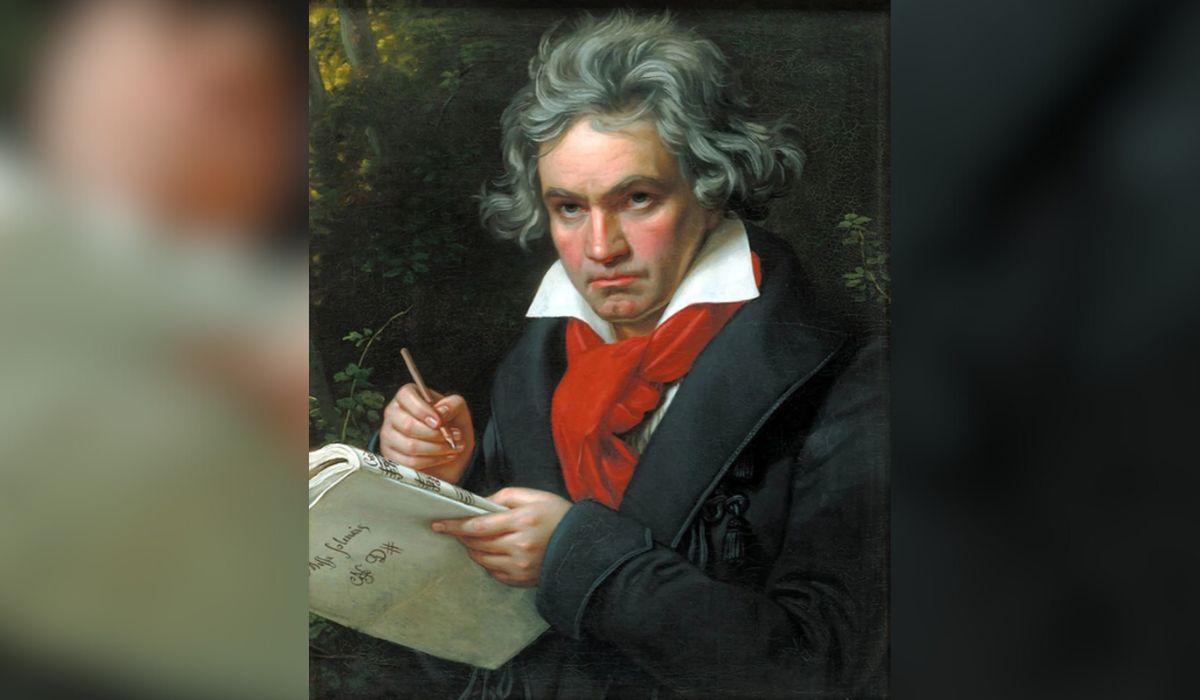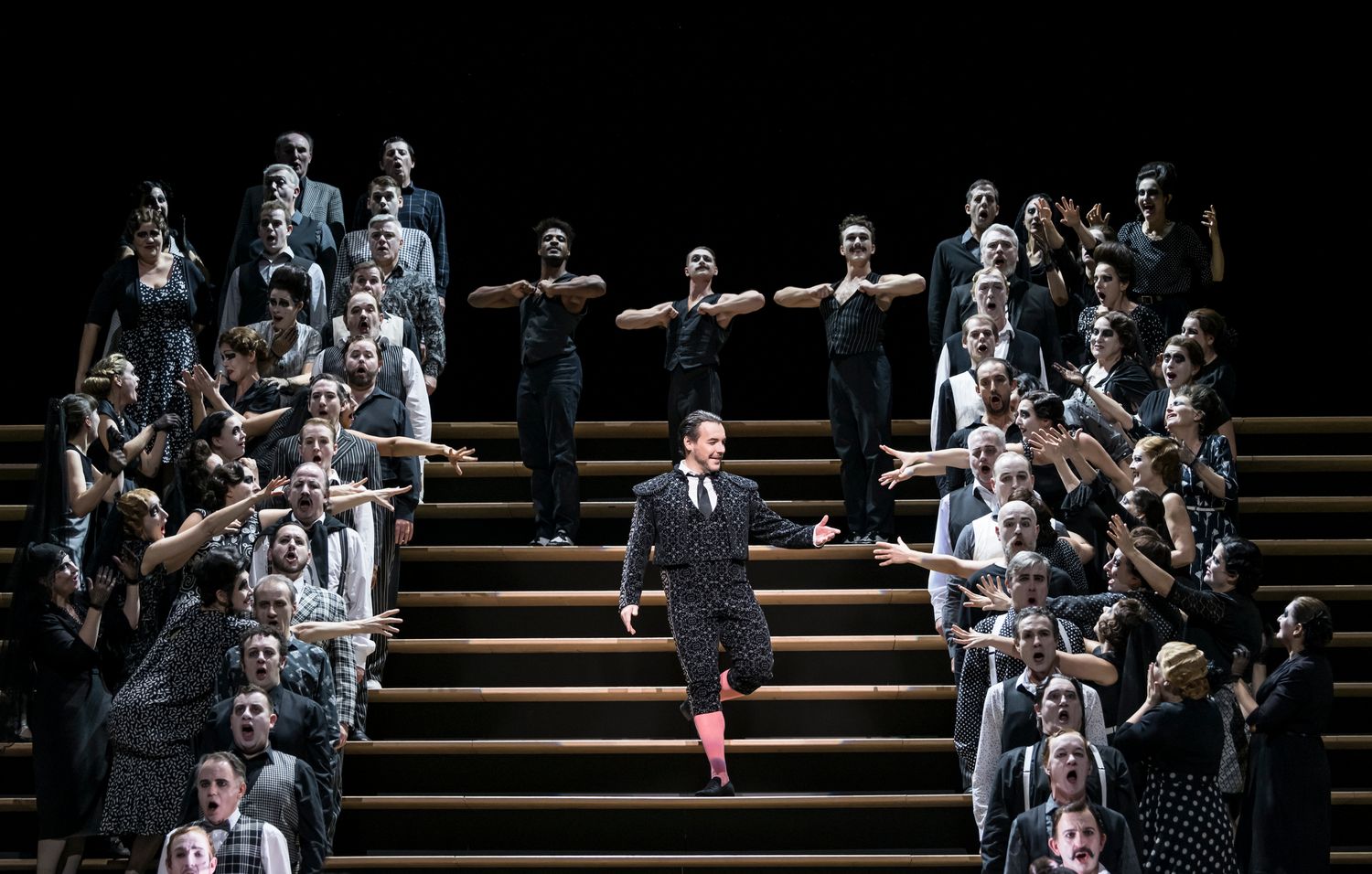Home>Genres>Symphony>How Did Beethoven Write Symphony 9 When He Was Deaf
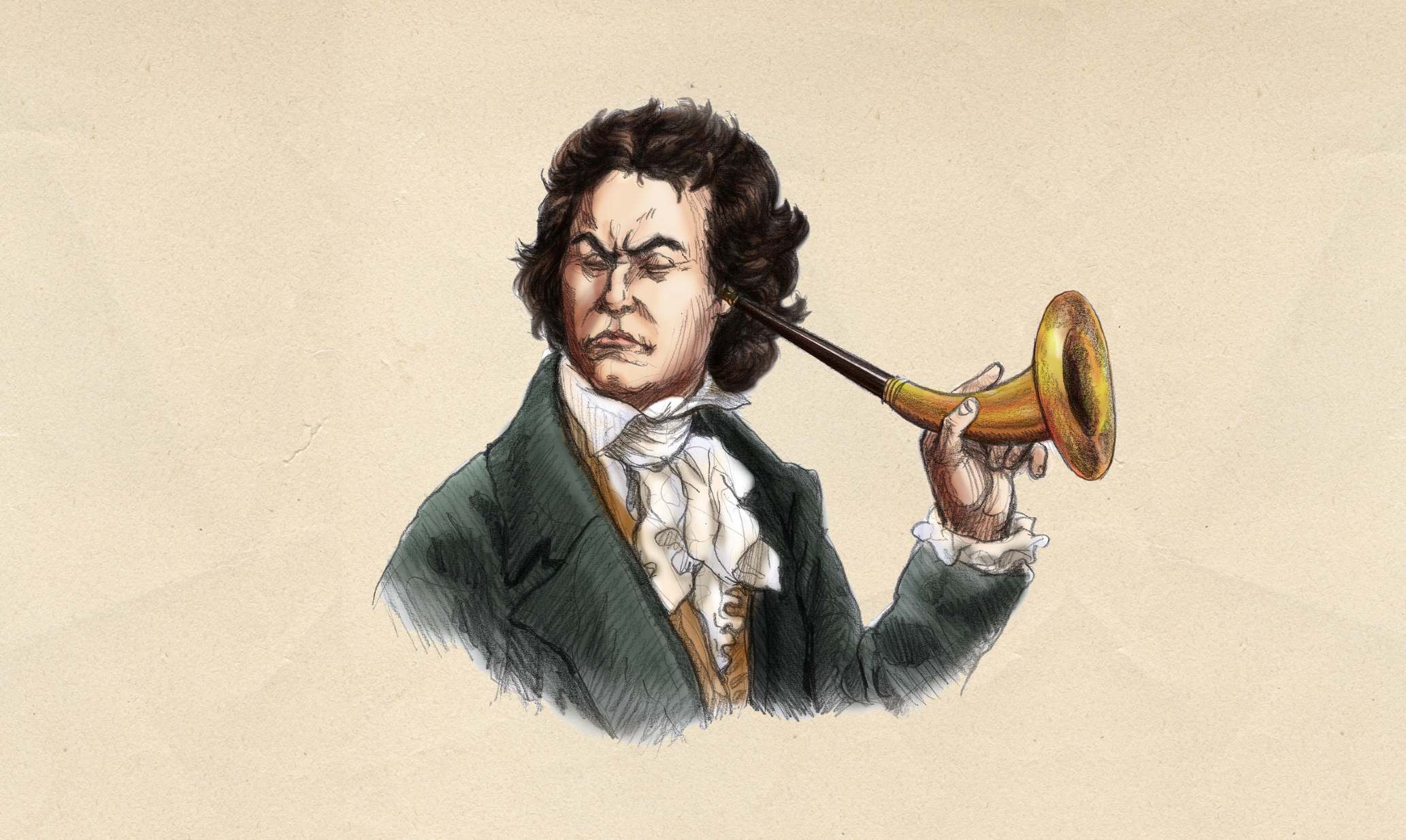

Symphony
How Did Beethoven Write Symphony 9 When He Was Deaf
Modified: January 22, 2024
Discover the incredible story behind Beethoven's iconic Symphony 9, composed against all odds, as the renowned maestro battled deafness. Experience the power of this musical masterpiece.
(Many of the links in this article redirect to a specific reviewed product. Your purchase of these products through affiliate links helps to generate commission for AudioLover.com, at no extra cost. Learn more)
Table of Contents
Introduction
Ludwig van Beethoven, one of the greatest composers in history, is renowned for his profound impact on classical music. His symphonies are regarded as masterpieces, but what truly astonishes music enthusiasts is that Beethoven composed his iconic Symphony 9 while completely deaf. This extraordinary feat raises the question: How did Beethoven manage to create such remarkable music without the ability to hear?
Beethoven’s journey to deafness was a gradual one. He began to experience hearing loss in his late twenties, and by his mid-thirties, he had lost most of his ability to hear. Despite this immense challenge, Beethoven was determined to continue pursuing his passion for music. His perseverance and unwavering dedication enabled him to overcome the obstacles presented by his deafness.
The composition of Symphony 9 was a pivotal moment in Beethoven’s life and career. This symphony, also known as the “Choral Symphony,” stands out not only for its musical brilliance but also for its inclusion of vocal soloists and a choir. Symphony 9, with its iconic “Ode to Joy” finale, remains one of Beethoven’s most celebrated works.
In this article, we will delve into the remarkable story behind Beethoven’s Symphony 9 and explore how Beethoven’s creative process allowed him to overcome the challenges posed by his deafness. We will also consider the impact of Symphony 9 on Beethoven’s legacy and the broader realm of classical music.
Beethoven’s Journey to Deafness
Ludwig van Beethoven’s journey to deafness was a gradual and devastating process that significantly impacted his life and music career. Born in 1770 in Bonn, Germany, Beethoven showed prodigious talent from a young age. However, around the age of 28, he began to experience the initial signs of hearing loss.
At first, Beethoven was able to manage his condition and continue composing. However, as the years went by, his hearing deteriorated rapidly, leaving him in a state of complete deafness by his mid-forties. The exact cause of Beethoven’s hearing loss remains uncertain, with theories ranging from genetics to his exposure to lead-based medications.
Beethoven’s hearing loss was a profound personal tragedy, impacting not only his ability to communicate but also his interactions with the world around him. As his hearing deteriorated, he became increasingly isolated and withdrew from society. Beethoven’s once vibrant social life dwindled, and he found solace in the sanctuary of his music.
Despite the hardships he faced, Beethoven’s determination to continue his musical career remained unwavering. He relied heavily on written communication, utilizing conversation books to communicate with others. These small notebooks would be passed back and forth, with Beethoven writing in his responses and thoughts.
Beethoven’s hearing loss had a profound influence on his compositions as well. As he became more reliant on his inner musical imagination, his compositions became more introspective and emotionally charged. The isolation resulting from his deafness allowed Beethoven to access a unique realm of creativity, enabling him to convey his innermost thoughts and emotions through his music.
Beethoven’s journey to deafness was undoubtedly a tremendous challenge, both personally and professionally. However, his resilience, inner strength, and unwavering passion for music allowed him to transcend his physical limitations and create some of the most iconic and revered compositions in the history of classical music.
Beethoven’s Persistent Passion for Music
Despite facing profound deafness, Ludwig van Beethoven’s passion for music remained undeterred. Music was not just a career for Beethoven; it was his very essence, the language through which he expressed his deepest emotions and thoughts. This unwavering love for music fueled his determination to continue composing, even in the face of unimaginable adversity.
Beethoven’s persistence in pursuing his passion for music can be seen in his unwavering dedication to his craft. He would spend countless hours at the piano, experimenting with musical ideas and refining his compositions. Beethoven’s incredible work ethic and attention to detail allowed him to bring his musical visions to life, transcending his physical limitations.
Despite his deafness, Beethoven continued to perform his compositions on the piano. Although he could no longer hear the sounds he produced, he relied on the vibrations and muscle memory to guide his playing. This enabled him to communicate his music to others while experiencing the physical sensation of the music he was creating.
Beethoven’s persistent passion for music was also evident in his tireless quest for perfection. He pushed the boundaries of classical music, introducing innovative techniques and structures that revolutionized the symphonic form. His compositions were imbued with emotional depth and complexity, reflecting the inner turmoil and triumphs of his own life.
Throughout his career, Beethoven’s determination to create music that resonated with the human experience remained steadfast. He believed that music had the power to transcend language and touch the deepest parts of the human soul. Even in his deafness, Beethoven was able to tap into this universal language and create music that spoke directly to the hearts of his listeners.
Beethoven’s unwavering passion for music serves as an inspiration not only to musicians but to people from all walks of life. It is a testament to the transformative power of perseverance, dedication, and the pursuit of one’s true passion. Beethoven’s commitment to his craft, even in the face of immense adversity, continues to inspire generations of artists and serves as a reminder that the human spirit has the power to transcend any obstacles that come our way.
The Composition of Symphony 9
The composition of Symphony 9, also known as the “Choral Symphony,” represents a significant milestone in Beethoven’s career. Completed in 1824, it stands as one of his most monumental and groundbreaking works. Symphony 9 marks a departure from traditional symphonic structures, as Beethoven introduces vocal soloists and a choir into the final movement.
Being deaf, Beethoven faced unique challenges in composing Symphony 9. Unable to hear the music he was creating, he relied on his internal musical imagination and the skills he had developed over the years. He would often conduct orchestras and vocalists during rehearsals, visualizing the sound and making adjustments based on the feedback of performers.
The composition of Symphony 9 took Beethoven several years to refine. He was meticulous in his writing, meticulously crafting each movement to convey his intended emotions and themes. For the famous “Ode to Joy” finale, Beethoven drew inspiration from Friedrich Schiller’s poem, which extols the virtues of joy and unity.
The inclusion of vocal soloists and a choir in Symphony 9 was a groundbreaking move at the time. It broke the traditional boundaries of instrumental symphonies and added a powerful dimension to the composition. The choral finale, with its soaring melodies and unified voices, became emblematic of the symphony and spoke to Beethoven’s belief in the power of music to uplift and unite humanity.
Despite his deafness, Beethoven was able to create a symphony that captivated audiences and continues to do so to this day. Symphony 9 showcases Beethoven’s ability to harness the full range of human emotions and express them through his compositions. It is a testament to his genius and unwavering dedication to the art of music.
Throughout the composition of Symphony 9, Beethoven faced numerous challenges, both technical and personal. However, he pushed through these obstacles, driven by his passion for creating music that resonated with the human experience. The result was a symphony that transcends time and continues to inspire and move audiences worldwide.
Overcoming Challenges: Beethoven’s Creative Process
Beethoven’s deafness presented him with countless challenges throughout his creative process. However, his determination, strength, and innovative approach allowed him to overcome these obstacles and continue composing music of unparalleled beauty and depth.
One of the key strategies Beethoven employed to navigate his deafness was his reliance on what is known as “mind hearing.” Despite being unable to physically hear the sounds, Beethoven could still imagine them in his mind. He would meticulously visualize the melodies, harmonies, and dynamics of his compositions, relying on his inner musical imagination to guide him.
In addition to mind hearing, Beethoven embraced a unique and experimental creative process. He would often use a “conversation book,” a notebook in which he would write down his thoughts and ideas. These notebooks served as a means of communication for Beethoven, allowing him to convey his musical concepts and directions to his performers and collaborators.
Beethoven’s creative process also involved a significant amount of improvisation. He would sit at the piano and explore different musical ideas, allowing his fingers to roam freely across the keys. This improvisatory approach enabled Beethoven to discover new motifs and themes that would eventually find their way into his compositions.
Furthermore, Beethoven relied heavily on the feedback and collaboration of his trusted colleagues and musicians. Despite being deaf, he would conduct the orchestra and guide the performers through expressive gestures and visual cues. This collaborative approach fostered a deep sense of understanding and interpretation, allowing Beethoven’s compositions to come alive in the hands of the musicians.
Another remarkable aspect of Beethoven’s creative process was his ability to transcend his personal struggles and tap into a universal language of emotion. His compositions captured the full spectrum of human experience, from immense joy to profound despair. Through his music, Beethoven was able to connect with audiences on a deep and visceral level, transcending the barriers imposed by deafness.
Beethoven’s creative process serves as a testament to the resilience of the human spirit and the power of artistic expression. Despite the challenges he faced, he never allowed his deafness to define him. Instead, he used it as a catalyst for innovation, pushing the boundaries of music and leaving an indelible mark on the world of classical composition.
Interpreting Beethoven’s Deafness
The deafness of Ludwig van Beethoven is a topic that continues to fascinate music historians, scholars, and enthusiasts. It is through various interpretations that we can gain insight into how Beethoven’s deafness influenced his music and creative process.
One interpretation suggests that Beethoven’s deafness heightened his sense of inner hearing, allowing him to tap into a deeper level of musical expression. Unable to rely on his physical hearing, Beethoven turned inward, relying on his mind’s ear to create compositions that resonated with depth and emotion. His deafness, in a way, freed him from distractions and external influences, leading to a more focused and introspective approach to his music.
Others believe that Beethoven’s deafness forced him to develop a greater sense of musical experimentation. Unable to rely on traditional conventions and external feedback, he broke free from the constraints of the musical norms of his time. This led to innovations in form, harmony, and structure, resulting in compositions that pushed the boundaries of classical music.
Beethoven’s deafness also played a role in the evolution of his musical style. As his ability to hear deteriorated, his compositions became more introspective and emotionally charged. The emotional depths reflected in his music are thought to stem from his personal struggles and triumphs in navigating through a world of silence.
Beethoven’s deafness also brought forth a sense of defiance and determination. Despite the immense challenges his hearing loss presented, he refused to let it hinder his creativity and continued to compose remarkable works. It is speculated that Beethoven’s perseverance in the face of adversity became a source of inspiration for his contemporaries and future generations.
Furthermore, the interpretation of Beethoven’s deafness extends to the emotional and psychological impact it had on his life. His letters and conversations documented his feelings of isolation, frustration, and moments of despair. Yet, it is also through these personal struggles that Beethoven found solace and inspiration in music, using it as a means to express and transcend his own emotions.
Ultimately, the precise influence of Beethoven’s deafness on his music may never be fully understood. It is a complex interplay of internalized sound, creative experimentation, and personal perseverance. However, what remains undeniable is the profound legacy Beethoven left behind, challenging conventions and leaving a lasting impact on the world of music.
The Impact of Symphony 9 on Beethoven’s Legacy
Symphony 9, often referred to as Beethoven’s masterpiece, holds a special place in his legacy and the annals of classical music. This symphony forever transformed the genre, leaving a lasting impact on composers and musicians in the years to come.
One of the most significant aspects of Symphony 9 is its inclusion of vocal soloists and a choir in the final movement. This groundbreaking move expanded the possibilities of the symphonic form, inspiring future composers to experiment with combining instrumental and vocal forces. The use of voices in Symphony 9 was a bold statement of Beethoven’s belief in the power of music as a universal language that transcends barriers.
The “Ode to Joy” finale of Symphony 9 has become an iconic and recognizable theme, representing the triumph of joy and the unity of humanity. This powerful and uplifting melody has resonated with audiences across generations, leaving an indelible mark on popular culture. It has been used in films, commercials, and public events, solidifying its place as one of the most memorable and enduring musical motifs in history.
The impact of Symphony 9 extends beyond its musical contributions. Beethoven’s ability to compose such a monumental work in the face of his deafness has inspired countless individuals to overcome obstacles in their own lives. It serves as a testament to the indomitable human spirit and the transformative power of artistic expression.
Furthermore, Symphony 9 cemented Beethoven’s position as one of the greatest composers of all time. His ability to convey profound emotions and explore the depths of the human experience through music has solidified his status as an artistic genius. Symphony 9 represents the culmination of Beethoven’s creative journey, reflecting his evolution as a composer and leaving a lasting impact on the classical music landscape.
The influence of Symphony 9 extends far beyond Beethoven’s lifetime. It inspired generations of composers, musicians, and performers to push the boundaries of musical expression. Its impact can be seen in the works of composers such as Brahms, Mahler, and Shostakovich, who were influenced by Beethoven’s innovative approach to composition.
Today, Symphony 9 continues to be performed and celebrated in concert halls around the world. Its timeless themes of joy, unity, and the triumph of the human spirit remain as relevant today as they were when Beethoven first penned the symphony. Symphony 9 serves as a testament to Beethoven’s enduring legacy, solidifying his place as one of the most influential composers in the history of music.
Conclusion
Ludwig van Beethoven’s Symphony 9 stands as a testament to the indomitable spirit of the human genius. Despite the immense challenges posed by his deafness, Beethoven’s unwavering passion for music and his determination to create art of unparalleled beauty propelled him to compose this legendary work.
Beethoven’s journey to deafness was a tragic one, but he refused to let it be a hindrance to his creative expression. Through his innovative approaches, Beethoven was able to overcome the limitations imposed by his condition, using his inner musical imagination and the collaboration of trusted musicians to bring his compositions to life.
Symphony 9, with its inclusion of vocal soloists and a choir, broke new ground in symphonic composition. It sparked a revolution in the genre, inspiring future generations of composers to explore the possibilities of combining instrumental and choral forces.
Moreover, the impact of Symphony 9 extends beyond its musical contributions. It has become a symbol of hope, unity, and the triumph of the human spirit. The timeless themes and melodies of the “Ode to Joy” finale continue to resonate with audiences worldwide, transcending barriers and touching the hearts of listeners across generations.
Beethoven’s legacy is defined not only by his incredible musical achievements but also by his ability to overcome adversity in pursuit of his passion. His story serves as an inspiration to us all, reminding us of the transformative power that lies within the human spirit.
In conclusion, Symphony 9 stands as a testament to the genius and resilience of Ludwig van Beethoven. Despite the challenges of his deafness, he created a masterpiece that continues to captivate and inspire audiences to this day. His ability to convey deep emotions and universal themes through music has solidified his place as one of the greatest composers in history. Beethoven’s Symphony 9 will forever remain a testament to the triumph of the human spirit and the enduring power of artistic expression.


